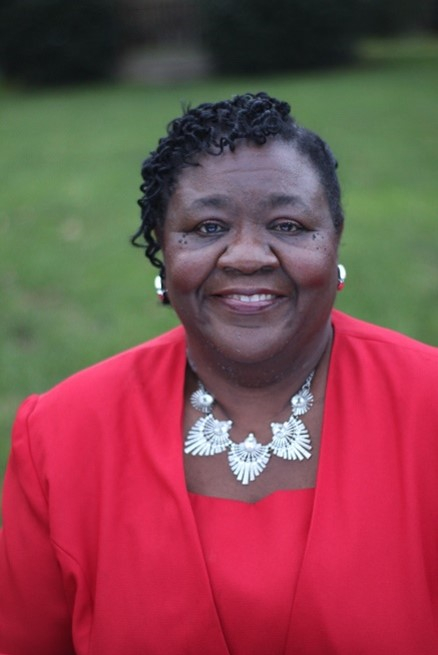An In Depth Look at BBF’s Mentor Support Program with Child Care Services Association
>>> Back to January 2024 Newsletter
Part of what Building Bright Futures offers to participants is a mentor support program through a partnership with Child Care Services Association (CCSA), called Mentoring Apprentices and Pre-Apprentices Program (M.A.P.P.). CCSA offers this professional development exclusively to the Building Bright Futures mentors of apprentices and pre-apprentices through a series of bi-monthly Community of Practices virtual meetings.
To recognize National Mentoring Month, we spoke with Sharon Little, Higher Education Liaison at CCSA and Amy Duffy, Senior Program Manager of the T.E.A.C.H. Early Childhood® North Carolina Scholarship Program. Both Amy and Sharon have been instrumental in carrying out M.A.P.P. since it began in fall 2023.

Various research studies and other national, state, and local resources including early childhood education, adult learning, best practices for mentoring, and apprenticeships were reviewed to help plan the mentor support program. During this research, one of the most important indicators of a successful mentoring experience was for the mentor to have received training. So, with that in mind, we planned to deliver a high-quality, diverse training tailored to meet the demands of the workforce and early educator mentorship.
What is the relationship between apprentice and mentor?
First and foremost, a reciprocal collaborative relationship is established between the mentor and the apprentice. The mentor provides the apprentice with support, motivation, feedback, help with goal setting, and progress monitoring so they can acquire the skill set and knowledge in becoming an early education professional. The apprentice is responsible for communicating their needs and being receptive to the mentor’s guidance and support. The mentor provides support and guidance to the apprentice which may include observation and feedback.
Why is mentorship important for apprentices?
Mentorship is valuable because it fosters relationships and provides a pipeline that leads to increased employee retention. Under a meaningful mentorship, apprentices gain knowledge of early childhood education’s best practices about child development and learning. They also receive one-on-one targeted support and leadership development from a designated and experienced early childhood professional.
Through this relationship, mentors help foster career awareness and development for apprentices, thus establishing a foundation of sound reflective and ethical professional standards and practices.

How often will you engage with BBF mentors?
The goal of M.A.P.P. is to provide support and professional development for mentors participating with BBF who are supporting apprentices and pre-apprentices across North Carolina. An initial training was held in October 2023 to introduce them to best practices for mentoring and expectations of mentors. We will have bi-monthly Community of Practice (CoP) meetings and the first one for 2024 will be held on February 13 from 1-2PM. There is also a designated email that is monitored and used to communicate to mentors regarding training and other topics. In addition, mentors are encouraged to reach out using that email at any time to receive support. We are available to offer ongoing guidance, tools, training modules, and materials to all BBF mentors.
What have you learned about mentoring apprentices that was a surprise?
As we began to create and develop M.A.P.P., our research led us to conclude that mentoring in the early childhood field cannot be a one-size-fits-all approach. Mentoring is dynamic and will depend on many distinct factors to be successful. Furthermore, we learned that in early childhood apprenticeships, mentoring will need to be flexible, adaptable, innovative and may be structured differently than other mentorships in other fields.
You have already had two successful events. What kind of feedback have you had?
The feedback we received from the first two events has been overwhelmingly positive. All respondents who have attended evaluated each session based on the organization of information, effectiveness of the information presented, responsiveness of facilitators, and the importance of the topics covered. Mentors were also given the opportunity to provide suggestions for future CoP topics.
Why do you think mentoring is so powerful?
Mentoring is powerful because of the holistic benefits. It connects to the development of the whole child concept and can have long-lasting effects that improve the lives of others and the community. The apprentices get the guidance they need to help them grow in the profession and feel empowered to take part in a strength-based approach through the collaborative processes of mentorship. It also benefits the mentor by helping them to develop leadership skills and receive recognition for their expertise and experience. The workforce benefits as it helps build and strengthen the pipeline of high-quality talent. Finally, mentoring will ultimately benefit the children of North Carolina. Research shows that early childhood educators who receive mentoring feel supported and therefore are more likely to stay in the field and provide high-quality education experiences for young children. It is a win-win for everyone!
Is there anything else you would like to share?
CCSA is honored to embark on this endeavor as we celebrate our 50th year of providing support to children, families, and the early care and education workforce. It was important for us to provide research-based and interactive training for mentors to give them the tools and guidance to establish successful mentoring relationships with their apprentices.